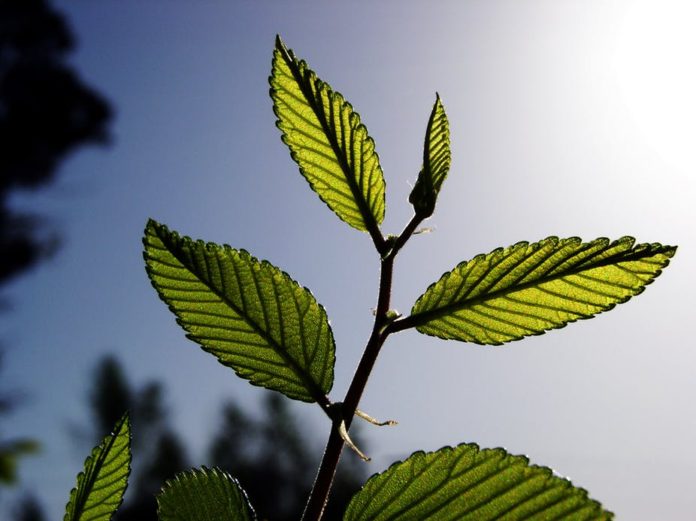A new study has confirmed that in warmer weather plants absorb more carbon dioxide by using carbon more efficiently. While some of the carbon gets used for plant growth, some of it also gets used in respiration, which involves the plant breaking down sugars in order to get energy.
Plant growth is affected by the balance between the fixation of carbon during photosynthesis and the releasing of carbon dioxide (CO2) during respiration. This is something which not only affects the individual plant. The whole global carbon balance is affected. And, the faster respiration-related photosynthesis occurs, the greater the rate at which carbon is absorbed by the rest of the world’s ecosystem.
In a new study published earlier this month in the Proceedings of the National Academy of Sciences, researchers report of how the rising levels of CO2 in the atmosphere caused by human input are affecting the balance between photosynthesis and respiration in individual plants They found that when plants use more CO2 for growth, they are effectively ‘locking up’ more of the CO2 from the atmosphere as it gets absorbed through their stems and leaves.
In previous studies, researchers measured this ratio at a given temperature in order to estimate the plant’s response. However, there is a third factor to consider which had not been taken into consideration previously called the “carbon allocation efficiency.” The new study will hopefully enable scientists to produce how plants will respond to climate change more accurately.
The carbon allocation efficiency will determine what route the CO2 takes as its absorbed through photosynthesis (i.e. will it be used for growth or respiration). What the team discovered was the warmer the temperature, the more carbon plants allocated to growth. They discovered this by combining mathematical modeling and previous data obtained from algae experiments.
In the end, the researchers concluded that an increase in carbon allocation efficiency induced by warm weather is, in fact, a general phenomenon. “Plants may be more capable of compensating the negative effects of warming on carbon fixation than previously thought, across both aquatic and terrestrial ecosystems,” says co-author of the study. Dr. Samraat Pawar, from the Department of Life Sciences at Imperial. “Our study provides a new way to better predict the effect of warming on carbon fixation by individual plants, and ultimately whole ecosystems.”
More News to Read
- 5 Ways Artificial Intelligence Can Make the Construction and Engineering Sector More Efficient
- It’s Raining on the Self-Driving Car Parade
- How the Brain Understands What We See and Knows the Right Action to Take
- Neuroscientists Shed Light on the Role of Certain Genes Associated With Alzheimer’s
- A Breakthrough in Gene Editing Sees Researchers Cure Blood Disorder

